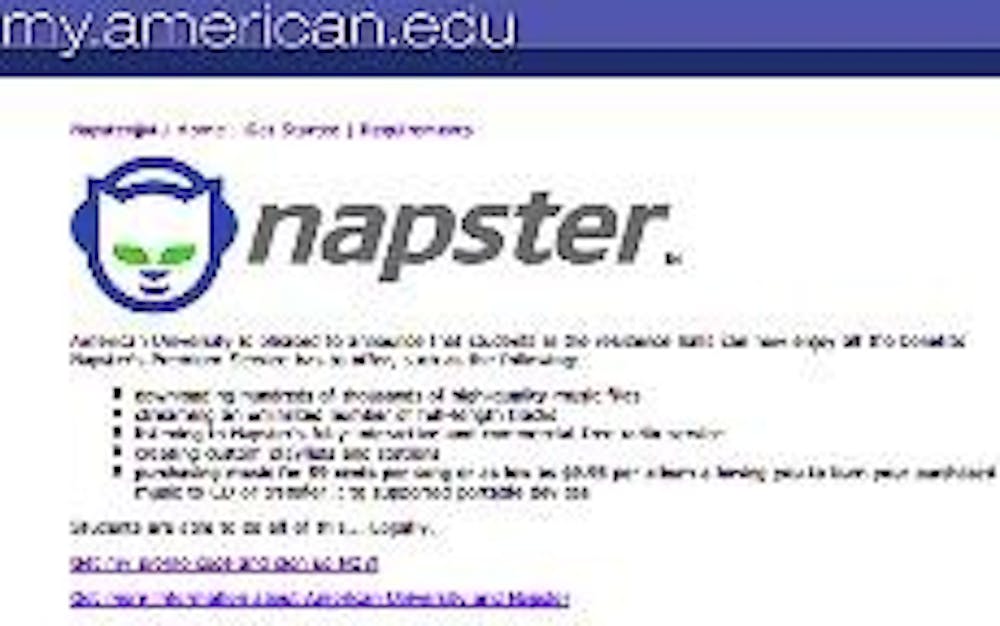The University of South Carolina received 914 complaints of illegal downloading this past year, according to the Recording Industry Association of America. According to The State, the University of South Carolina's newspaper, that amount of complaints makes it one of the worst music pirates in the country.
The University of South Carolina does not offer a legal alternative for downloading music such as Napster, which AU has provided its students for the past two years.
Since April 2003, AU has dealt with over 600 incidents of illegal sharing of files, according to Eric Weakland, AU's director of network security.
The University's General Council, the legal department at AU, receives the complaints and contacts the Office of Information Technology, which works to determine who is responsible for the copyright infringement. That user is then contacted and told that they are in breach of AU's computer use agreement and that they must cease and desist with all illegal file sharing and delete any illegal files they may have. Sometimes multiple incidents may result from one complaint, Weakland said.
AU began to look for a legal downloading program during the summer of 2004, according to Rick Treter, AU's director of resident life.
"When the whole drama with downloading began, we started looking for a program," Treter said. "It was in response to information that the RIAA was going to do much stricter enforcement of illegal downloads."
During the 2004-2005 school year, AU used a program called Ruckus on a trial basis. According to Treter, students complained about the lack of song selection on Ruckus, so the university continued searching for another program.
"As soon as we heard that Napster was available, we began to explore utilizing the program," Treter said. "Napster had a much larger music library than Ruckus had."
Napster allows students to download music onto their computers for no cost. Students also have the ability to upgrade and download music onto MP3 players for as little as 80 cents a song, according to the Housing and Dining Program Web site.
"I use [Napster] all the time," Ryan Pickett, a freshman in the School of International Service, said. "It's the only thing I use, it's legitimate and I don't need to worry about anything like with the illegal programs."
Napster works with PCs, but not with Macs. Any student with a Mac is allowed to waive the charge for the program, $25 per academic year, at the beginning of the semester, according to the Housing and Dining Program Web site.
While students on campus have access to Napster, many students who live off campus must decide whether to use other file-sharing programs to get music.
"I use Limewire all the time," a senior in the School of Communication who did not wish to be named said. "It's annoying to spend money to buy a CD when I just want one or two songs, but if it's an artist that I really like, I'll spend the money."
Programs like Limewire and Bearshare are popular sources of file sharing for many students across the country, especially students like those at the University of South Carolina who, according to The State, have no legal alternative offered by the school.
Along with buying Napster for its students, AU also blocks access to many of these file-sharing programs, according to Weakland.
Concerns about getting caught as well as concerns about viruses have caused many students to steer clear of illegal file-sharing programs.
"When I used to use Kazaa, I ended up getting a lot of viruses," Jessica Hollander, a senior in the College of Arts and Sciences, said. "So once I got my new computer, I didn't bother with that stuff."
While the amount of illegal downloading on AU's campus has dropped with the inclusion of legal downloading software, few think it has put a complete stop to media piracy.
"I think we gave people a legal option that lets them download to their computer," Treter said. "I think that has cut down on the pirating, but do I think it still goes on? Oh yeah"





